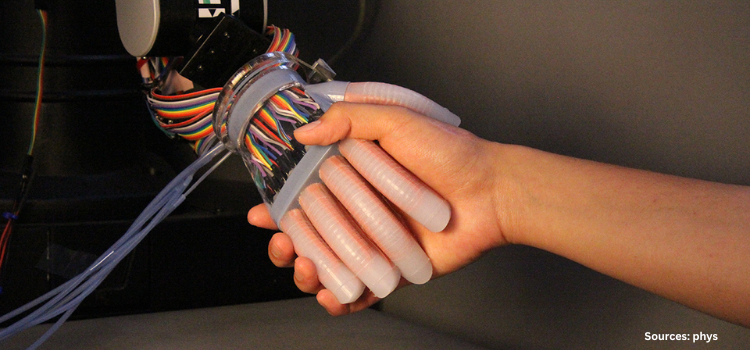Germany Eye Tracking Market by Type (Head Mounted Eye Tracker and Remote Eye Tracker), by Component (Hardware and Software), by Application (Assistive Communication, Academic Research, Consumer Behavior Research, Usability Testing and Other Applications), and by End-User Industry (Retail, Automotive, Healthcare, Government and Others)- Opportunity Analysis and Industry Forecast, 2024– 2030
Industry: Semiconductor & Electronics | Publish Date: 06-Jan-2025 | No of Pages: 143 | No. of Tables: 108 | No. of Figures: 53 | Format: PDF | Report Code : SE2459
Germany Eye Tracking Market Overview
The Germany Eye Tracking Market size was valued at USD 54.0 million in 2023, and is predicted to reach USD 231.6 million by 2030, at a CAGR of 21.8% from 2024 to 2030. The market is a comprehensive ecosystem of products, services, and technologies designed to measure and analyze eye movements, gaze direction, and fixation points.
This industry includes specialized hardware such as cameras, sensors, and light sources, as well as software solutions for data processing and analysis. Eye tracking, also known as eye monitoring systems, are applied across various industries such as psychology, market research, user experience testing, and human-computer interaction to provide insights into consumer behavior, visual perception, and interface usability.
In the contemporary landscape of user experience and human-computer interaction, eye monitoring emerges as an indispensable tool, offering invaluable insights into user engagement and interface usability.
Booming Automotive Industry Drives the Germany Eye Tracking Market Growth
Germany's thriving automotive industry is a major driver for the eye-tracking industry, where the technology finds diverse applications aimed at enhancing driver safety and overall user experience.
Eye-tracking technology supports advanced driver assistance systems and enables interior controls that respond to a driver's gaze, making driving both safer and more convenient. For instance, in May 2023, BMW introduced an innovative eye-tracking lane-changing feature in the new BMW 5 Series sedan.
This cutting-edge technology enhances lane-changing assistance, promoting safer and more efficient driving experiences. Such advancements represent significant progress in automotive safety and driver assistance systems, further integrating eye-tracking technology into the automotive sector.
Market Research and Advertising Strategies Drives Demand for Eye Tracking Systems
The increasing demand for vision tracking technology in smart wearables is significantly driving the Germany eye tracking market demand. As more consumers adopt devices such as augmented reality glasses and virtual reality headsets, the need for sophisticated eye-tracking capabilities is becoming more pronounced.
Eye-tracking technology enhances user experiences by enabling precise control, seamless interaction, and more immersive experiences in these devices. This capability is particularly important in applications such as gaming, virtual training, and interactive media, where accurate and responsive user input is critical.
The growing popularity of smart wearables for both personal and professional use underscores the Germany eye tracking market expansion, as manufacturers integrate these technologies to meet consumer expectations and improve device functionality. This trend is anticipated to continue, further accelerating the adoption and development of eye-tracking technology within the smart wearables sector.
Proliferation of Alternative Technologies Hinder the Germany Eye Tracking Market Expansion
The Germany eye tracking market growth is significantly restrained by the proliferation of alternative technologies such as gesture recognition, unimodal methods, and multimodal activity recognition. The availability and adoption of these alternatives limit the industry potential by providing competitive solutions that meet diverse user needs and preferences.
Integration of AR and VR in Eye Tracking Technology Create Future Market Prospects
The swift integration of eye movement tracking systems across various sectors, including augmented reality (AR), virtual reality (VR), lie-detection systems, and cognitive testing, is poised to unlock significant opportunities within the Germany eye tracking market trends.
This technology plays a crucial role in enhancing image clarity and reducing eye strain in AR and VR applications, making it a dynamic field driven by startups and investments from tech giants such as Apple, Google, Facebook, and Samsung.
For instance, in March 2022, Mojo Vision announced a new advanced prototype of its AR smart contact lens Mojo Lens. The prototype includes various new hardware features and advanced technologies such as advanced display, communications, eye tracking technology, and a power system embedded into the lens. It allows users to access timely information quickly and discreetly without forcing them to look down at a screen.
Competitive Landscape
The key market players operating in the Germany eye tracking industry include Tobii AB, Smart Eye AB, Lattice Semiconductor Corp, Ogilvy, Seeing Machines Limited, AVSimulation, Lumen, Eyetech Digital Systems, Inc., EyeTracking, Gazepoint, Eyegaze, Eyeware Tech, SR Research Ltd., Pupil Labs, and Irisbond Crowdbonding, S.L. and others.
Germany Eye Tracking Market Key Segments
By Type
-
Head Mounted Eye Tracker
-
Remote Eye Tracker
By Component
-
Hardware
-
Software
By Application
-
Assistive Communication
-
Academic Research
-
Consumer Behavior Research
-
Usability Testing
-
Other Applications
By End-User Industry
-
Retail
-
Automotive
-
Healthcare
-
Government
-
Others
REPORT SCOPE AND SEGMENTATION:
|
Parameters |
Details |
|
Market Size in 2023 |
USD 54.0 Million |
|
Revenue Forecast in 2030 |
USD 231.6 Million |
|
Growth Rate |
CAGR of 21.8% from 2024 to 2030 |
|
Analysis Period |
2023–2030 |
|
Base Year Considered |
2023 |
|
Forecast Period |
2024–2030 |
|
Market Size Estimation |
Million (USD) |
|
Growth Factors |
|
|
Companies Profiled |
15 |
|
Market Share |
Available for 10 companies |
|
Customization Scope |
|
|
Pricing and Purchase Options |
Avail customized purchase options to meet your exact research needs. |
|
Customization Scope |
Free customization (equivalent up to 80 working hours of analysts) after purchase. Addition or alteration to country, regional, and segment scope. |
|
Pricing and Purchase Options |
Avail customized purchase options to meet your exact research needs. |
KEY PLAYERS
-
Tobii AB
-
Smart Eye AB
-
Lattice Semiconductor Corp
-
Ogilvy
-
Seeing Machines Limited
-
AVSimulation
-
Lumen
-
Eyetech Digital Systems, Inc.
-
EyeTracking
-
Gazepoint
-
Eyegaze
-
Eyeware Tech
-
SR Research Ltd.
-
Pupil Labs
-
Irisbond Crowdbonding, S.L.














 Speak to Our Analyst
Speak to Our Analyst





















